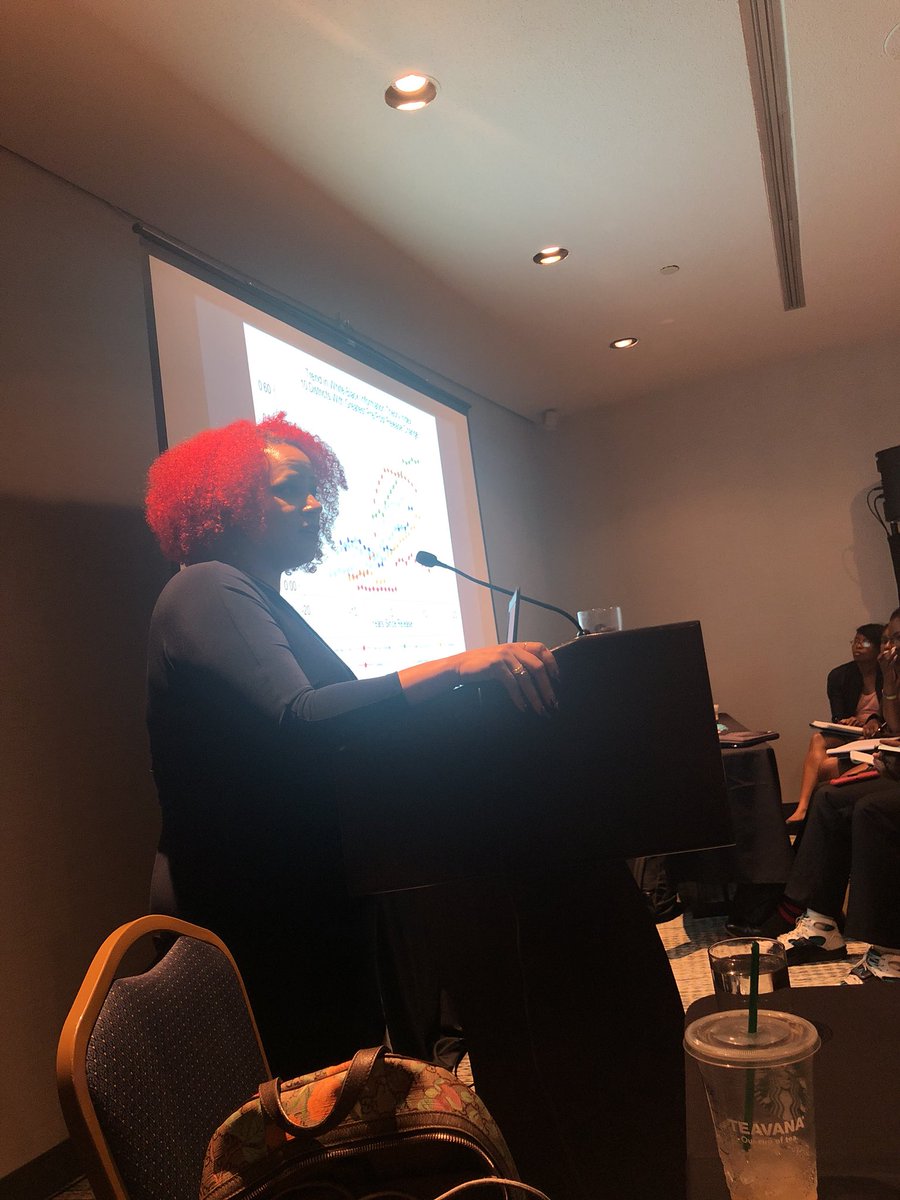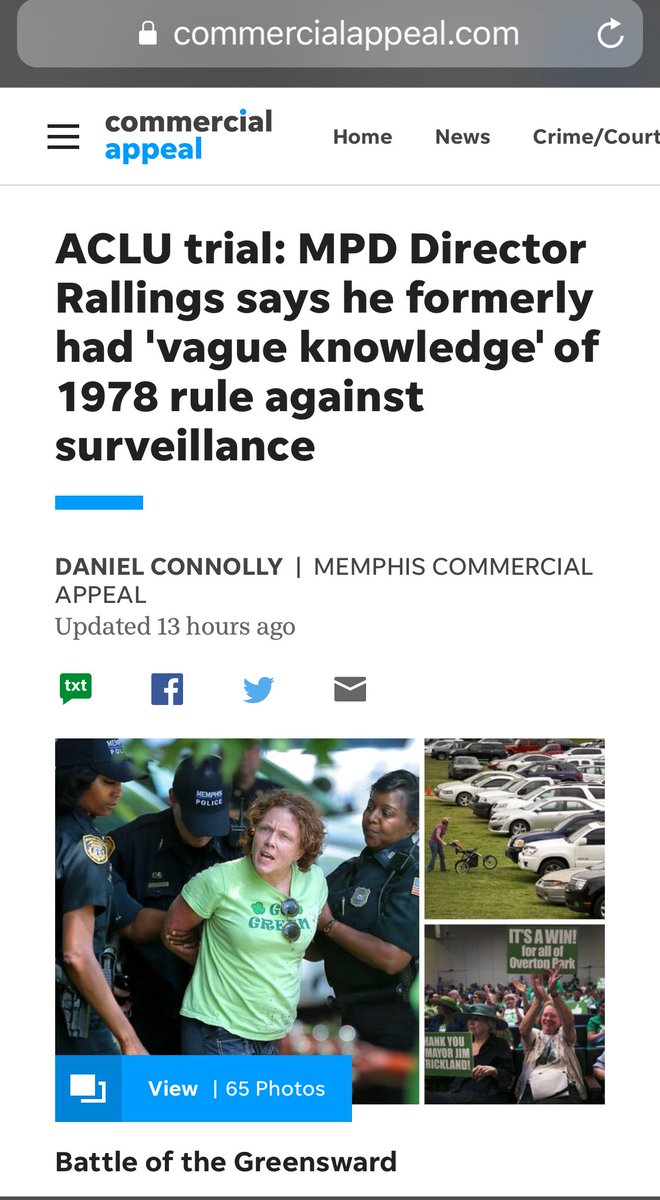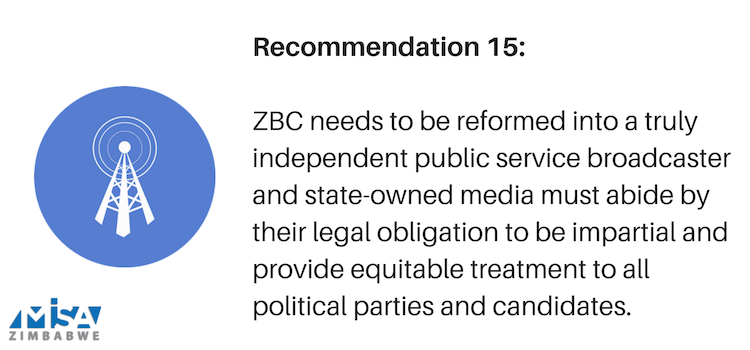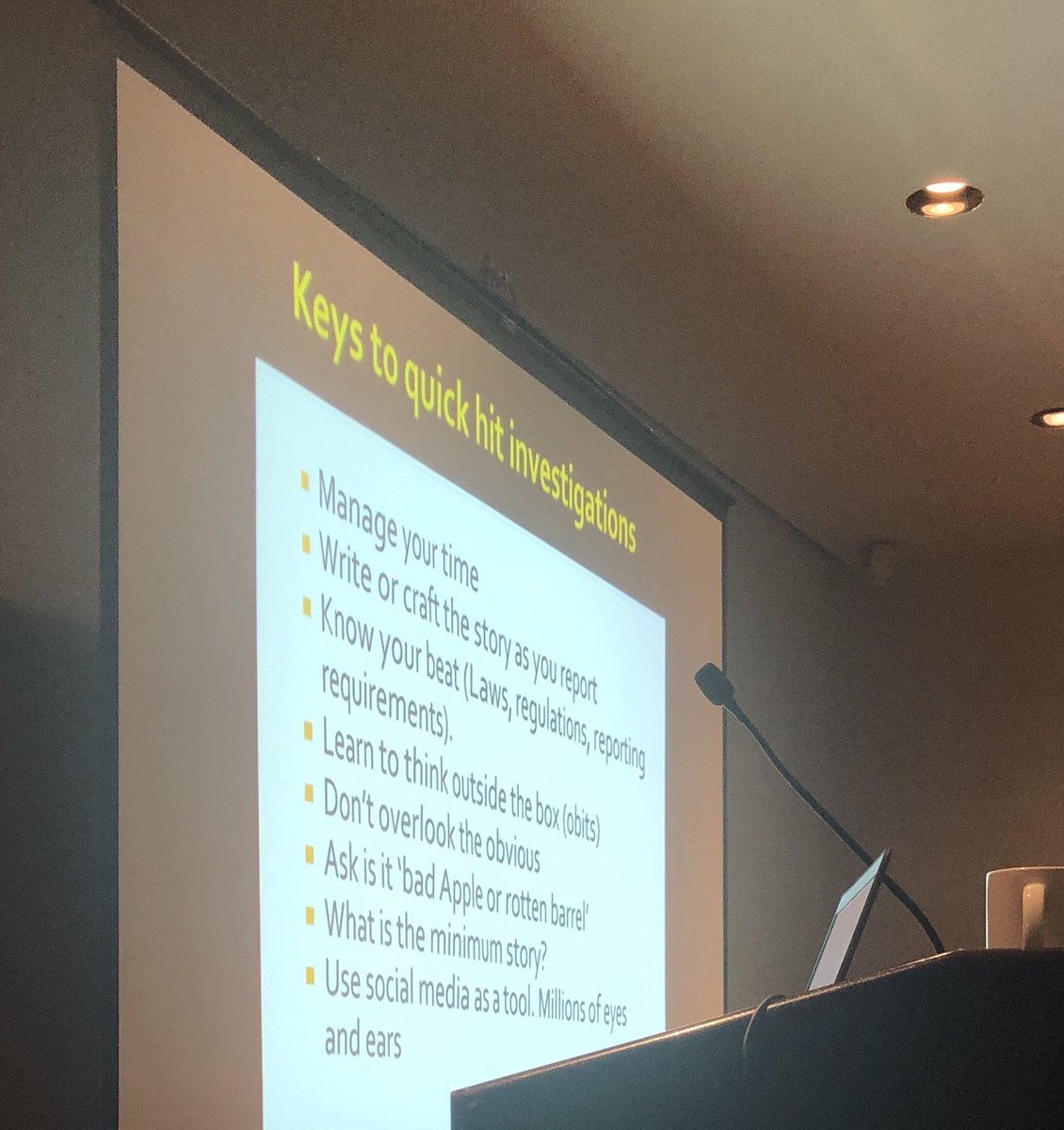
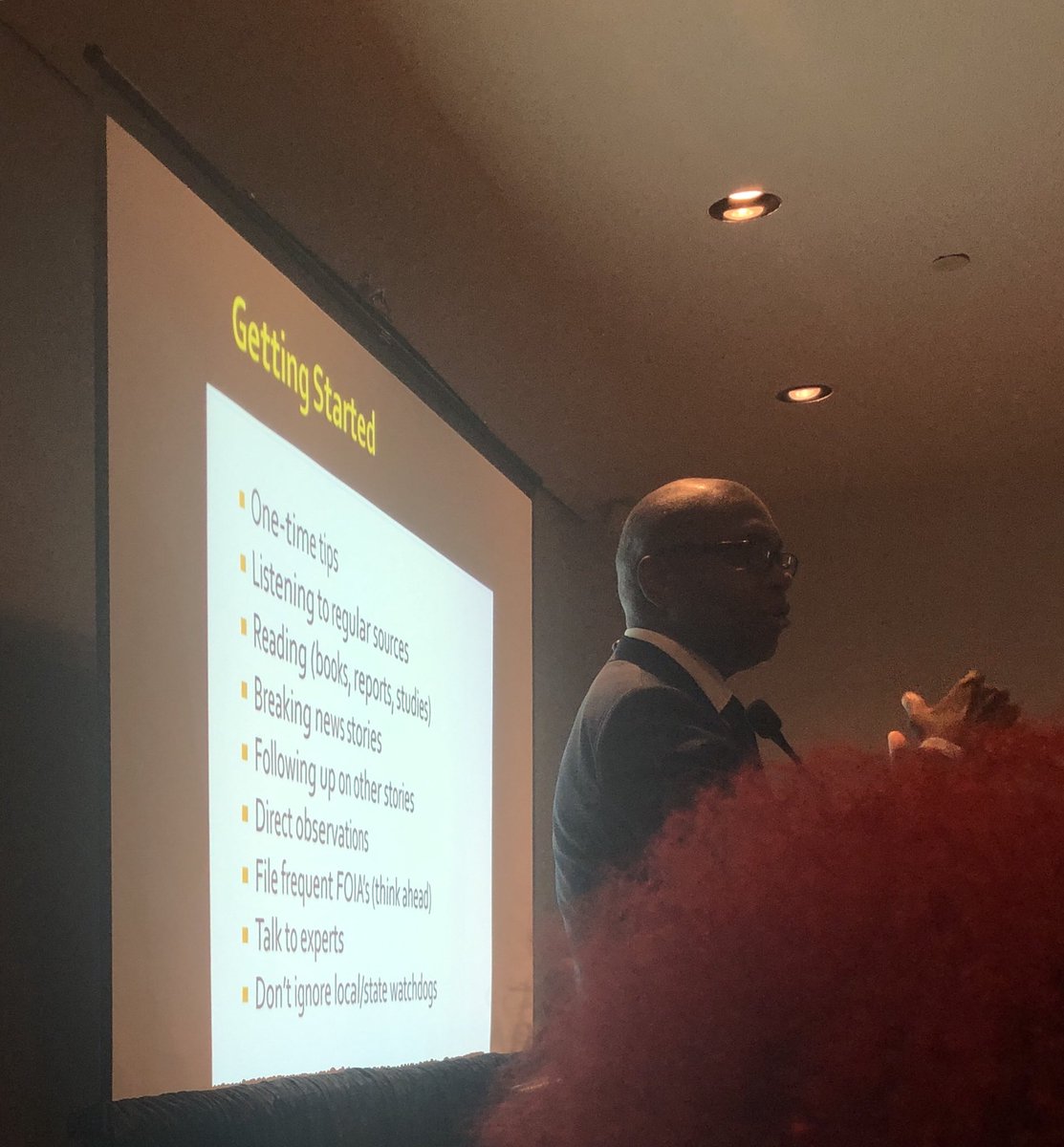
File FOIAs to get: Permits, schedules of elected officials.
(I like to FOIA what’s been FOIA’ed.)
Turn to local colleges for experts.
He noticed that legal fees in Henry County, VA jumped by 200% in one year and that led to a major story exposing serious corruption.

Too much journalism is bad apples. That gotcha journalism that you see during sweeps.
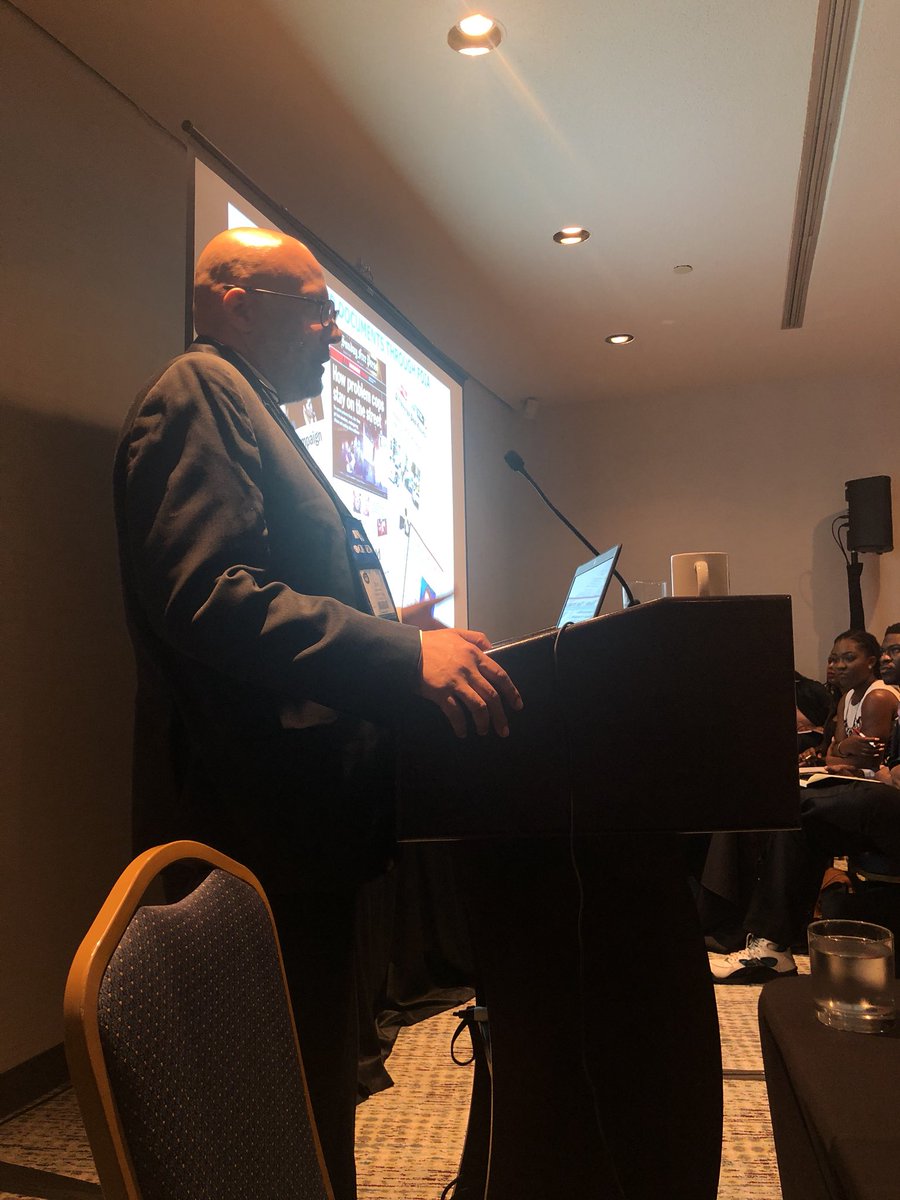
That said, don’t just be out here filing public records requests all willy nilly. (I’m paraphrasing.)
Don’t think you can make these relationships on deadline. Do the legwork up front.
Here’s one site: ballotpedia.org/State_sunshine…
Also, find out what the appeals process is. In Michigan, there’s a state agency that says it has no appeals process, so if it won’t give you the document, then...
The more streamlined your request is, the more quickly you’ll get it back. Ask for what you NEED for the story.
(This is reminding me of how many public records requests of mine that a certain city government is sitting on. Gr.)
Rochester: The law requires that they find the lowest-paid, most-qualified employee who can do the work. They’ll push back if that employee makes $30/hour.
(This is the part I don’t do well so then I’m searching through emails to try to find what was requested in what FOIA. Don’t be me.)
This story was made possible by FOIAs, @mjrochester says.
Nice work, @freep. @IBWellsSociety @NABJ
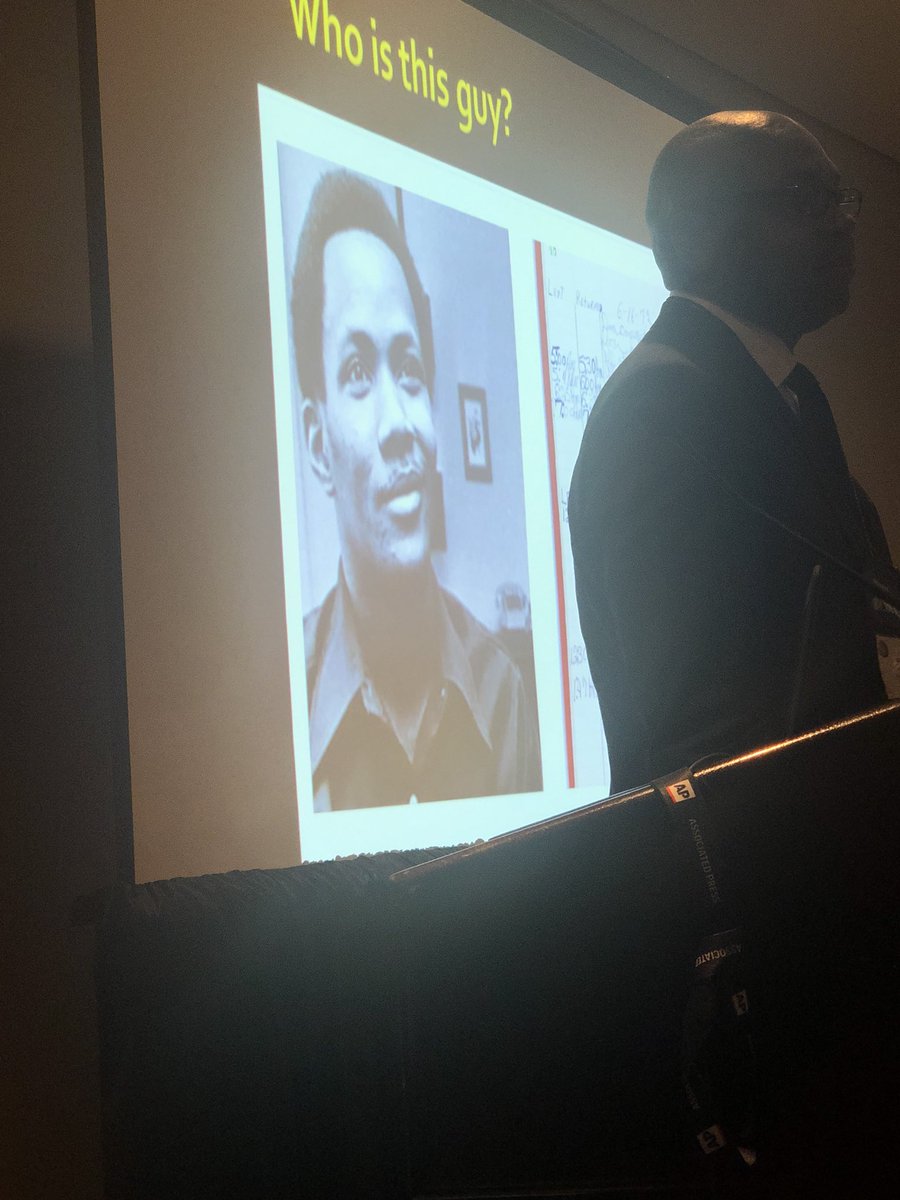
Talk to people who used to be at whatever org/agency you’re investigating. They know how those orgs work and can connect you to other sources.
@nhannahjones she spends a lot of time with sources, may be following them and their kids to school, etc. important to set boundaries and define the terms.
Politicians may understand how we work, but regular folks may not.
Reporting shouldn’t be about an extraction, where we’re just taking from the sources and giving nothing of ourselves
For example, does it make sense to use an unnamed source for the story about Melania not being able to watch CNN on Air Force One?
Ask your sources: How do you know this? Did you hear this from somebody, or did you see it yourself?
But, if you’re going to use it: Set your messages to delete after a certain period of time!!!
(FWIW: I don’t trust people who knowingly hand over all their biometric data to the government or private companies. What’s up with that?)
Proof: 3 Memphis journalists (including me) are in these MPD joint intelligence briefings. citylab.com/equity/2018/07…
Got a great idea? Itching to tell your editor?
Stop.
Among the questions you need to be able to answer:
Why do we care?
Who is being harmed and who is doing the harm?
Is the data available and what would it take to get it?
JOC don’t have a high margin of error, plus editors don’t want to free up beat reporters to do projects, so don’t sabotage yourself.
You’re asking your editor to take a chance and to let you do something you haven’t done before.
(I’m paraphrasing but it’s Nikole so only slightly.)
“Data and documents are good but characters matter.”
Start with this video: longreads.com/2015/11/05/apo… @IBWellsSociety @NABJ #NABJ18
The day she went to interview a key black judge/source, news had just broken that his granddaughter had been shut out of the white sorority she wanted to join. He was in the mood to talk and DID.
Then get your elevator pitch.
@NABJ #NABJ18
mlk50.com/do-memphis-25-…
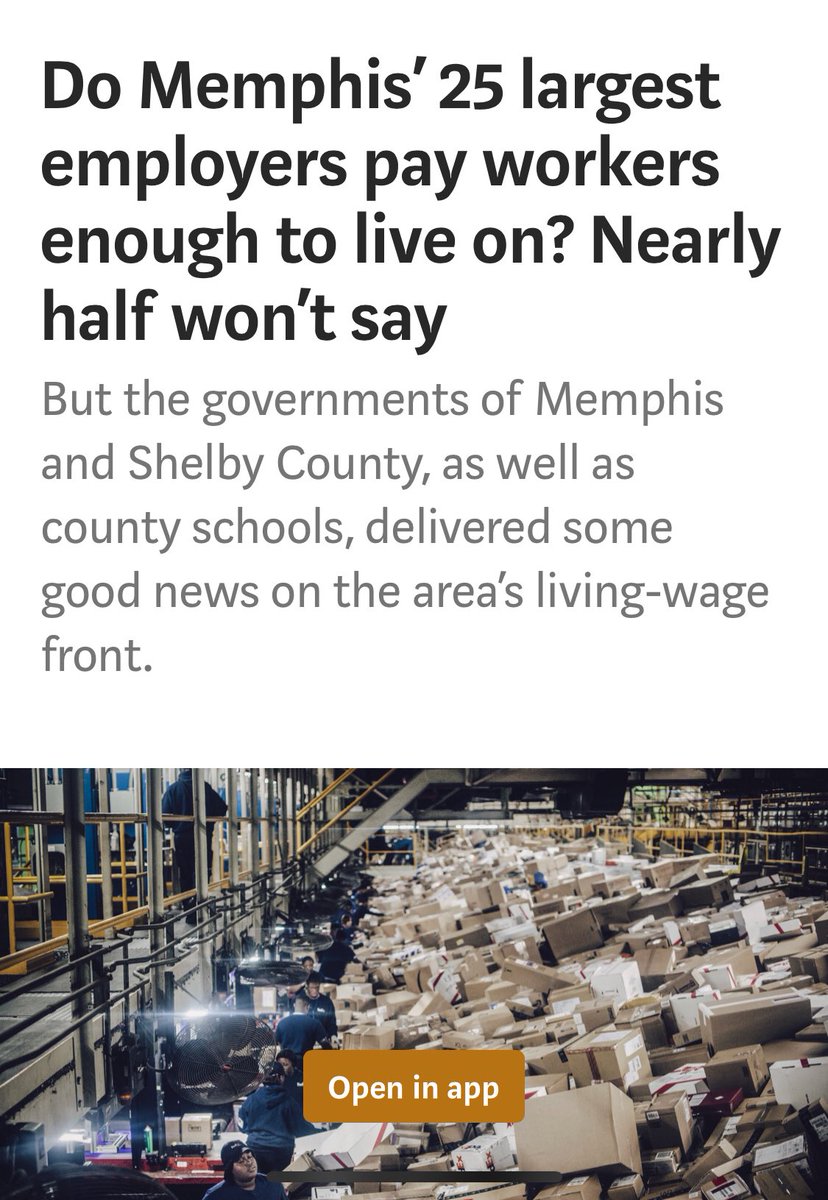
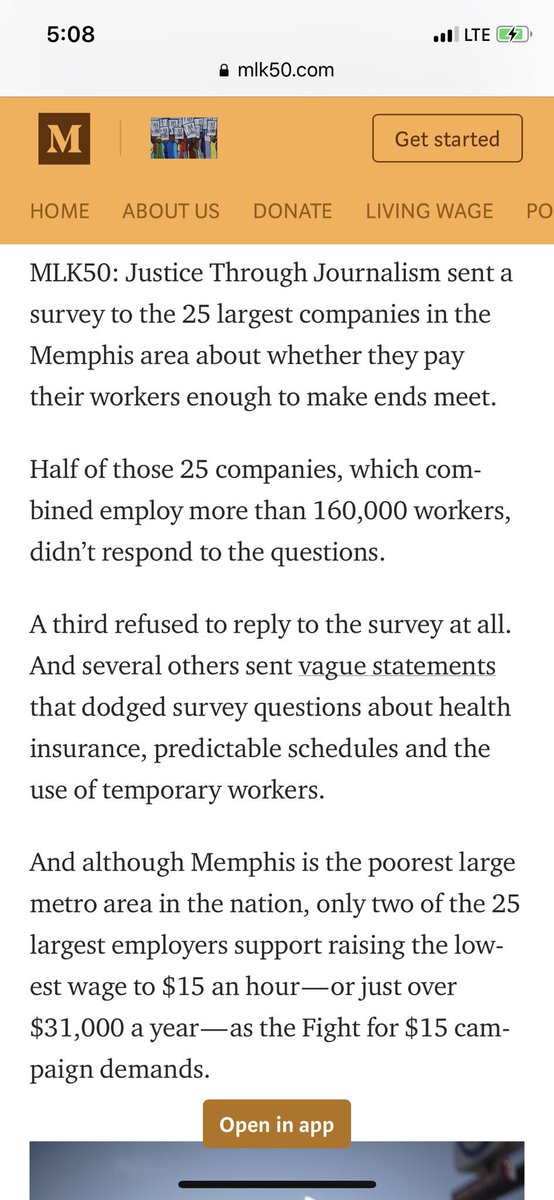
Also does a chronology that includes the docs (with an assigned number) so she knows where her facts are. Plus a running to do list.
She says she didn’t do this with her 10K word piece and it took as long to fact check it as it did to write it.
(*thinks briefly about deleting Twitter app from phone*)
I sense she subscribes to the “ask forgiveness, not permission” school of editor management.
This is true and sad. But @IBWellsSociety is about to unleash a whole squad of IJOC ready to do this work!
Brother shouts out an investigative reporting job at Louisville Public Radio.

